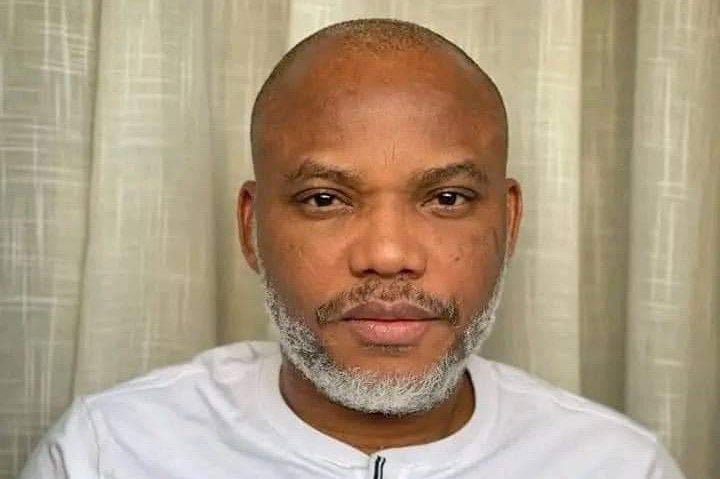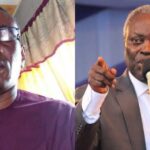
Njoku Jude Njoku, a member of the global legal consortium representing the detained leader of the Indigenous People of Biafra (IPOB), Nnamdi Kanu has called out the federal government.
Njoku lamented that the continued detention of Kanu is as a result of “grave legal errors.”
Speaking on Thursday in Abuja, Njoku stated that the government exploited procedural missteps to extend Kanu’s incarceration, despite a 2022 ruling that had discharged him.
Njoku pointed to the October 13, 2022, ruling by the Court of Appeal, which discharged Kanu because the court lacked jurisdiction to try him.
“That ruling should have ended the matter. The failure to enforce it was a critical error,” Njoku stated.
He explained that the Federal Government wrongly used Order 6 Rule 1 of the Court of Appeal Rules, a civil procedure, to challenge a criminal discharge, thereby reopening a case that had been legally terminated.
“This was a colossal legal blunder. That rule is meant for civil appeals, not criminal ones. It should never have applied. By going along with this, Ozekhome effectively allowed a dead case to be re-opened,” he added.
The legal practitioner also faulted the Supreme Court for accepting the Federal Government’s appeal, despite the Court of Appeal’s decision that Nigeria had no legal jurisdiction to try Kanu due to his unlawful extradition from Kenya.
Njoku emphasised that a discharge based on lack of jurisdiction is equivalent to an acquittal, citing the Supreme Court precedent in FRN v. Osahon (2006).
He further criticised the use of the Terrorism Prevention Act (TPA) 2013, which he said had already been repealed and replaced by the Terrorism (Prevention and Prohibition) Act 2022 in May of the same year Kanu was charged.
“You can’t revive a dead case. That’s basic law, confirmed by Section 6(1)(c) of the Interpretation Act 1964, which says repeal doesn’t revive a proceeding that was already terminated,” he argued.
He said Section 108(2) of the new law, which permits the continuation of existing cases, does not apply because the Court of Appeal had already struck out Kanu’s case.
Njoku expressed sympathy for Kanu’s current legal team, whom he said inherited a case marred by “serious errors” and limited options for redress.
He also urged Kanu’s supporters to remain focused and united.
“The real enemies are the abuse of civil rules in criminal cases, the misuse of repealed laws to try political prisoners, the silence of foreign governments that should know better, and the dangerous precedent of allowing executive power to override constitutional rights,” Njoku warned.
Despite the hurdles, he expressed optimism that the involvement of senior legal minds such as Kanu Agabi (SAN) and the adjudication by Justice Omotosho could bring a just outcome.
“With these legal minds on the case, we have a real shot at restoring the meaning of constitutional rights and freeing a man who has already been discharged,” Njoku concluded.














